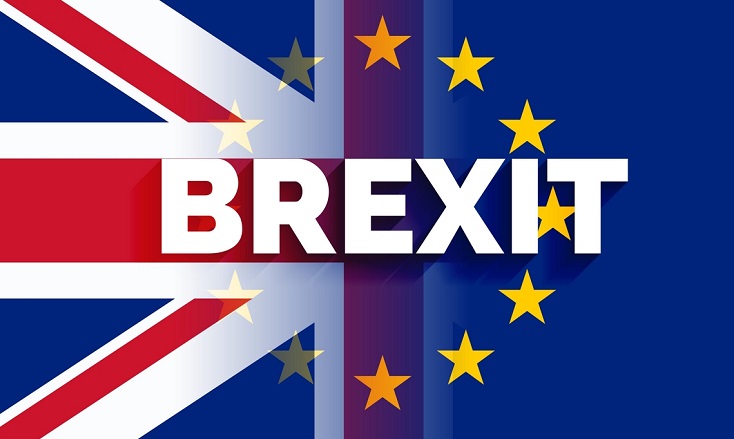Key Information – Brexit and the Timber Industry
The 31st January 2020 marked the end of the UK’s membership of the European Union and the start of the ‘transition period’. This transition period draws to an end on 31st December 2020, during which it was hoped that the UK could successfully secure a trade agreement with the EU. However, on Monday 14th September, the Internal Market Bill was debated in Parliament, and passed its initial vote (with further steps to follow prior to becoming law in the UK). This new legislation would enable the UK Government to override part of the Brexit agreement.
As such, with less than four months until the transition period ends, the situation is far from ideal for UK businesses to plan appropriately. In fact, it’s quite confusing at the moment as to what businesses in our industry should be preparing for.
To help provide some clarity we have updated the Brexit FAQ section of our website. It is our understanding that some of the information below is subject to change as a result of on-going negotiations, so please keep this in mind and utilise the links below to government published information on each of the subjects relevant to our industry.
We will of course be updating this section as further detail is released.
Brexit (People)
[su_spoiler title=”Guidance for EU, EEA and Swiss workers in the UK” open=”no” style=”default” icon=”plus” anchor=”” class=””]
– EU/EEA and Swiss citizens living in the UK before 31st December 2020 have until 30th June 2021 to apply for the EU Settlement scheme or for British Citizenship if they wish to continue to live in the UK after this date. Individuals can find out what actions they need to take if they wish to remain in the UK.
– Employers can support their workers using the Government’s EU Settlement Scheme: employer toolkit.
– There will be no changes to the ‘right to work’ for EU and European Economic Area (EEA) workers based in the UK and they should continue to be checked in the same way until June 2021.
[/su_spoiler]
[su_spoiler title=”Guidance for Non EU workers in the UK” open=”no” style=”default” icon=”plus” anchor=”” class=””]
There will be no changes to the current system for non EU workers based in the UK until 1st January 2021 at which point the new immigration rules will apply. See FAQ below relating to the new points based immigration system.
[/su_spoiler]
[su_spoiler title=”Guidance for UK Workers in the EU and EEA” open=”no” style=”default” icon=”plus” anchor=”” class=””]
If you employ UK workers based in EU and EEA countries, you can check the guidance for UK nationals living in EU and EEA countries here.
[/su_spoiler]
[su_spoiler title=”New Points Based Immigration System – what you need to know” open=”no” style=”default” icon=”plus” anchor=”” class=””]
From 1st January 2021, there will be a new points‐based immigration system which will apply to EU and non‐EU citizens and require those that want to work in the UK to meet a specific set of requirements. The new system will not apply to those citizens already living in the UK before 30th December 2020.
EU citizens already living in the UK before the 30th December 2020 should apply for the EU settlement scheme or British Citizenship if they wish to stay in the UK.
[/su_spoiler]
[su_spoiler title=”How do you apply for the EU settlement scheme?” open=”no” style=”default” icon=”plus” anchor=”” class=””]
If you’re an EU, EEA or Swiss citizen, you and your family can apply to the EU Settlement Scheme to continue living in the UK after 30th June 2021. You can also apply if you’re the family member of an eligible person of Northern Ireland.
The EU Settlement Scheme is open now and it’s free to apply. Find out more by clicking here.
[/su_spoiler]
Brexit (Trade)
[su_spoiler title=”Changing from CE Marking to UKCA marking – what you need to know” open=”no” style=”default” icon=”plus” anchor=”” class=””]
The government are introducing the UKCA (UK Conformity Assessed) marking which will apply to most goods currently subject to CE Marking.
As a result, businesses are being encouraged now to be ready for full implementation of the new UK regime, as soon as possible after 1st January 2021.
Businesses will be able to use the UK mark from 1st January 2021, however too allow businesses time to adjust, some CE marked goods, that meet EU requirements, may continue to be placed on the UK market.
This arrangement will end on 1st January 2022, and businesses should prepare for the end of recognition of the CE mark in Great Britain by introducing the UK marking (UKCA), using a UK-recognised ‘approved body’ by 1st January 2022.
For further information on implementing UKCA marking visit this government guidance page.
[/su_spoiler]
[su_spoiler title=”Changes to import rules and regulations from 1st January 2021″ open=”no” style=”default” icon=”plus” anchor=”” class=””]
From 1st January 2021, all importers bringing goods into the UK must follow the below steps to ensure they are complying with the new rules and regulations in place:
– Get an Economic Operator Registration and Identification (EORI) number that starts with GB.
– Decide if you want to make customs declarations yourself or get help
– You may need to buy specialist software to use simplified procedures.
– You could be entitled to financial help to help your business complete customs declarations.
– If you have authorisations to use special or simplified procedures check if they still apply.
[/su_spoiler]
[su_spoiler title=”Changes to EU and international designs and trade mark protection from 1 January 2021″ open=”no” style=”default” icon=”plus” anchor=”” class=””]
– The Intellectual Property Office has produced guidance for business holding registered community designs and international trademarks and designs after the end of the transition period. Changes to EU and international designs and trade mark protection from 1 January 2021.
[/su_spoiler]
[su_spoiler title=”Introduction of the UK Global Tariff from 1st January 2021″ open=”no” style=”default” icon=”plus” anchor=”” class=””]
The UK Global Tariff will apply to all goods you import from 1st January 2021 unless an exception applies. For example, the goods you’re importing:
– are from a developing country that pays less or no duty because it’s part of the Generalised Scheme of Preferences
– are from a country that has a trade agreement with the UK
– have a relief or tariff suspension that’s operated by the UK
It will replace the current common external tariff.
Use this service to check the UK Global Tariff that will apply to goods you import from 1st January 2021. You can also check the difference between what you pay now and what you’ll pay from 1st January 2021.
The BWF encourages all members to start having conversations with their timber suppliers about any potential price changes and also any issues that will impact supply.
[/su_spoiler]
[su_spoiler title=”EU trademark protection and comparable UK trademarks” open=”no” style=”default” icon=”plus” anchor=”” class=””]
– The Intellectual Property Office has produced guidance for businesses and organisations holding EU trademarks at the end of the transition period. EU trademark protection and comparable UK trademarks.
[/su_spoiler]
[su_spoiler title=”Exhaustion of IP rights and parallel trade from 1 January 2021″ open=”no” style=”default” icon=”plus” anchor=”” class=””]
– NEW– The Intellectual Property Office has produced guidance on actions that parallel exporters to the EEA and intellectual property rights holders will need to take after the transition period. Exhaustion of IP rights and parallel trade from 1 January 2021.
[/su_spoiler]
[su_spoiler title=”Exhaustion of IP rights and parallel trade from 1 January 2021″ open=”no” style=”default” icon=”plus” anchor=”” class=””]
– NEW– The Intellectual Property Office has produced guidance on actions that parallel exporters to the EEA and intellectual property rights holders will need to take after the transition period. Exhaustion of IP rights and parallel trade from 1 January 2021.
[/su_spoiler]
[su_spoiler title=”Changes to international trade mark registrations from 1 January 2021″ open=”no” style=”default” icon=”plus” anchor=”” class=””]
– NEW – The Intellectual Property Office has produced guidance on international trademark registrations protected in the EU under the Madrid Protocol will no longer enjoy protection in the UK after the transition period. Changes to international trade mark registrations from 1 January 2021.
[/su_spoiler]
[su_spoiler title=”Changing your company registration from 1 January 2021″ open=”no” style=”default” icon=”plus” anchor=”” class=””]
– Companies House has produced guidance to help you find out whether your business will need to change its company registration from 1 January 2021, and how to do this. Changing your company registration from 1 January 2021.
[/su_spoiler]
Northern Ireland (import and export from mainland UK)
Goods moving between Ireland and Northern Ireland will face different procedures compared to other UK-EU trade.
The government published information on these changes earlier in the year but have since withdrawn the content from their website as negotiations continue.
It is likely to be confirmed by 15th October 2020 and we will be updating this section as soon as details are definite.


